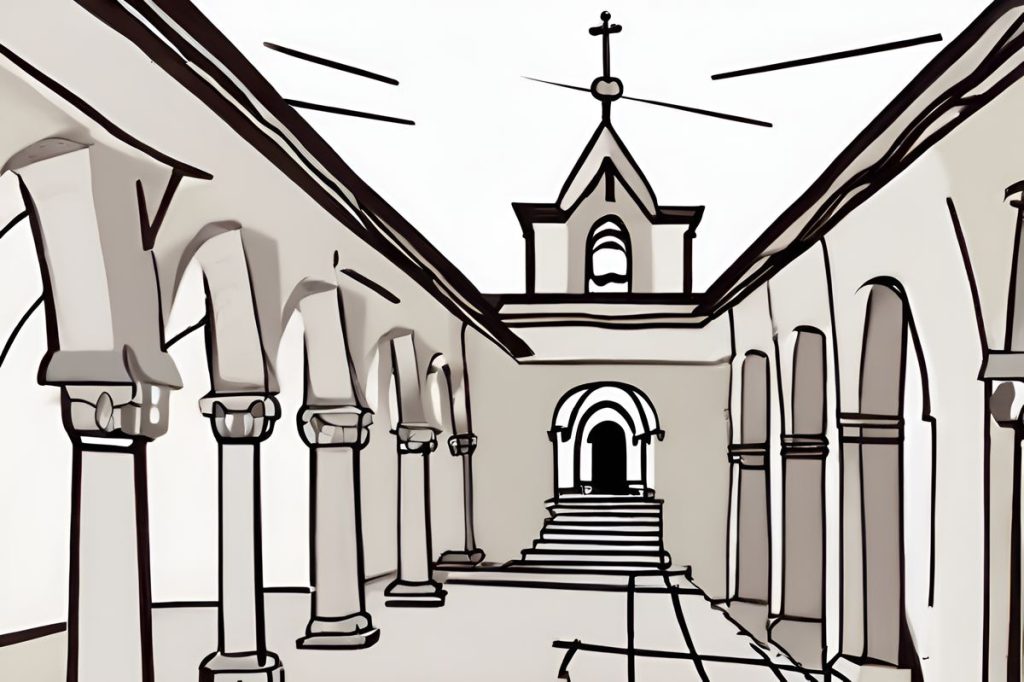The Osiou Avakoum Monastery is under investigation for potential GDPR violations involving intrusive surveillance practices, including unauthorized use of CCTV cameras and audio recordings. Allegations of coercion of monks into signing confessions have also emerged, raising concerns about privacy violations and misuse of authority.
What are the GDPR violation concerns at Osiou Avakoum Monastery?
The Osiou Avakoum Monastery is under investigation for potential GDPR violations involving intrusive surveillance practices. Concerns include unauthorized use of CCTV cameras and audio recordings, which are against GDPR regulations protecting individual privacy. Additionally, there are allegations of monks being coerced into signing confessions.
Uncovering the Surveillance
Recent developments have brought to light possible criminal activities associated with the surveillance practices at the Osiou Avakoum Monastery. Data Protection Commissioner Irene Loizidou-Nicolaidou has raised serious concerns regarding the usage of CCTV cameras within the monastery’s premises. The initial investigation has revealed potential breaches of the General Data Protection Regulation (GDPR), emphasizing the gravity of privacy laws in religious settings.
The probe into these matters began on March 22 and concluded with a detailed report forwarded to the police on June 4. The investigation aimed to verify the legality and necessity of the CCTV usage, as well as to inspect certain events within the diocese of Tamassos that fall under the commissioner’s purview. These events took place in early March 2024 and have since cast a spotlight on the monastery’s adherence to GDPR.
The Intrusive Nature of Audio Surveillance
Amid the controversy, the commissioner has particularly criticized the use of audio recording in surveillance, labeling it as “very intrusive.” The circulation of video content with sound from the monastery had raised red flags about privacy violations. Such practices are strictly forbidden under GDPR regulations, which protect individuals’ personal data and restrict unauthorized audio recordings.
In addition to the surveillance concerns, authorities are investigating the alleged coercion of monastery monks into signing confessions. Reports have surfaced about the Tamassos Bishop Isaias organizing a forceful extraction of monks from the monastery, involving 30 police officers, some of whom were masked. This incident has added another layer of complexity to the case, intertwining alleged violations of individual rights with potential misuse of authority.
The Power of Administrative Sanctions
Regardless of the criminal implications, the GDPR empowers the Data Protection Commissioner to levy administrative sanctions for non-compliance. Commissioner Loizidou-Nicolaidou has made it clear that such measures will be considered upon the conclusion of the ongoing police investigations. This underlines the importance of GDPR and the consequences of failing to adhere to its guidelines.
The implications of these findings extend beyond just the monastery. They serve as a reminder of the pervasive nature of surveillance technology and the need for its strict regulation to protect personal freedoms and privacy. As the ramifications of the case against Osiou Avakoum Monastery unfold, it has underscored the need for stringent adherence to data protection laws.
Legal Ramifications and Ongoing Investigations
At the center of this investigation is Bishop Isaias, whose actions have come under scrutiny. The involvement of his brother, who is purportedly connected to the secret service and had access to the surveillance material, adds a concerning dimension to the case. This situation raises pressing questions about the intersection of religious authority, law enforcement, and individuals’ privacy rights.
The legal framework of GDPR is designed to safeguard against such abuses of power and privacy infractions. As the commissioner and police delve deeper into the investigation, the legal and ethical implications of surveillance within ecclesiastical entities are brought into the limelight. This case may well set a precedent for how religious institutions should navigate the complex terrain of modern privacy laws.
What are the GDPR violation concerns at Osiou Avakoum Monastery?
The Osiou Avakoum Monastery is under investigation for potential GDPR violations involving intrusive surveillance practices. Concerns include unauthorized use of CCTV cameras and audio recordings, which are against GDPR regulations protecting individual privacy. Additionally, there are allegations of monks being coerced into signing confessions.
What is the nature of the audio surveillance criticism in the investigation?
The commissioner has criticized the use of audio recording in surveillance as “very intrusive.” The circulation of video content with sound from the monastery was flagged for privacy violations. Unauthorized audio recordings are strictly forbidden under GDPR regulations, which protect individuals’ personal data.
What legal consequences could the monastery face for potential GDPR violations?
The Data Protection Commissioner has the authority to levy administrative sanctions for non-compliance with GDPR regulations. The ongoing police investigations will determine if any legal actions or sanctions will be imposed on the Osiou Avakoum Monastery for violating data protection laws.
Who is the key figure under scrutiny in the monastery surveillance scandal?
Bishop Isaias is at the center of the investigation, with his actions being closely examined. His alleged involvement in coercing monks and the connection of his brother to the surveillance material have raised concerns about the intersection of religious authority, law enforcement, and individual privacy rights in this case.

